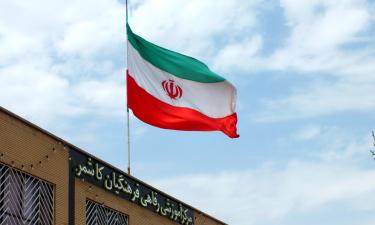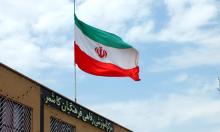EU counterattacks Russia for Moscow's successful actions in the WTO
The European Union put forward claims against Russia in the World Trade Organization totalling 290 billion euros for violating its rules and regulations, in particular, by Russia's import substitution.
Probably, the move came as retaliation to Russia's successful efforts, which proved that the EU was violating WTO regulations by collecting the so-called carbon tax.
Not that long ago, representatives for the Russian Ministry of Economic Development and Trade announced that Russia would try to prove that EU's proposed carbon tax (it will amount to 1.1 billion euros per year for the Russian Federation) comes contrary to WTO rules, as the EU intends to establish additional import duties in excess of the marginal rates, above which raising tariffs was not allowed.
The essence of EU's 290-billion-dollar claims against the Russian Federation is as follows:
- bids from European companies are deliberately submitted at a higher price;
- Russian companies are required to apply to the Import Substitution Commission in advance when purchasing mechanical engineering products;
- permits for the purchase of products in the EU are allegedly issued arbitrarily;
- a group of about 250 goods (including vehicles, equipment, medical devices and textiles), should be Russian goods up to 90%, which is also considered unfair in the European Union.
On December 20, the WTO established an arbitration panel of trade experts to assess the case and issue an initial decision.
During the first meeting on November 29, Russia vetoed the adoption of such a decision. Should the inquiry be submitted repeatedly, the decision will be made automatically, unless all members of the organization vote against it. This is unlikely to happen as the US has already supported the EU.
Experts are confident that Russia will undoubtedly appeal against the unacceptable decision to appropriate WTO authorities.
Russia was forced to implement import substitution, protectionism does not contradict WTO practices
We would like to bring it up here that Russia started implementing import substitution activities in response to anti-Russian sanctions imposed by the West. The policy to substitute imported products with Russian analogues does not contradict the rules of international trade.
The European Union, the United States and China also work to increase the share of national products in the structure of their products. For example, many Western countries provide various subsidies to their farmers and introduce quotas for the supplies of agricultural products from other countries.
The Europeans, for example, develop preferences with African countries, opening markets for them and introduce protective duties for other countries. The United States acts in a similar fashion and gets away with it as it plays a leading role in the WTO.
For example, former US President Donald Trump moved the economic policy of the United States into the format of extremely aggressive protectionism by imposing import duties ranging from 15 to 30 percent for Chinese and European companies.
Trump's predecessor, Barack Obama, had also imposed impressive protective duties against Russian and Chinese steel makers. For some reason, Obama's decisions had not been regarded as a violation of either the WTO or the rules of unrestricted trade.
WTO as hybrid war arena
In 2020, Russia won a 30-year energy adjustment dispute against the European Union at a WTO court. The Russian side managed to prove that the pricing of Russian exports was of market nature.
It just so happens that it is impossible to resolve economic issues within the framework of the WTO. The World Trade Organization has exhausted itself, and one needs to create another system or seriously change the existing one for a fair distribution of power.
The WTO arbitration group usually consists of three to five specialists who do not act as representatives of any states nor do they hold the citizenship of the parties to a trade dispute. IN a nutshell, a representative for Ukraine can join the WTO arbitration group on the EU lawsuit against Russia.
The claimant and respondent countries present their arguments to the group. If the parties to the dispute are not satisfied with the decision ща the dispute settlement body, then they can appeal. The losing party undertakes to bring its legislation in line with the decision of the dispute settlement body, but many WTO member countries have provisions in their Constitutions or laws that abolish this obligation.
Subscribe to Pravda.Ru Telegram channel, Facebook, RSS!





